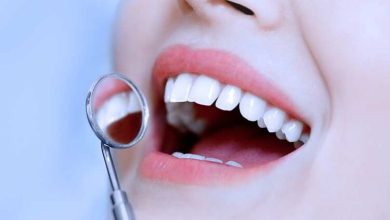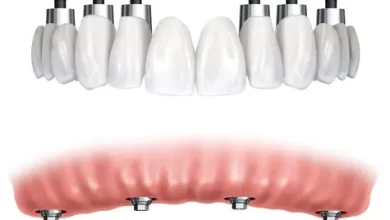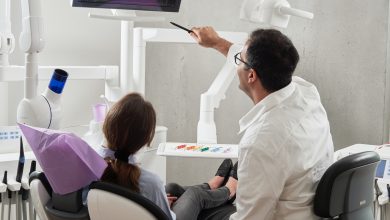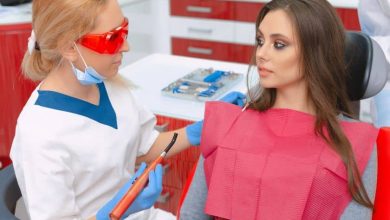How Does Streptococcus Mutans Trigger Tooth Decay? 6 Key Mechanisms Explored!
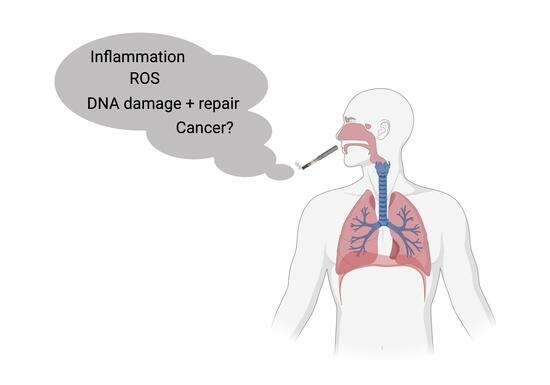
Streptococcus mutans causes dental caries by producing acids that demineralize the tooth enamel. Dental caries is a common oral disease resulting from the interaction between certain bacteria, particularly Streptococcus mutans, and the carbohydrates present in the diet.
When S. Mutans metabolizes the sugars, it produces acids that lower the pH in the mouth, leading to demineralization of the tooth enamel. This process weakens the enamel and allows for the formation of cavities, ultimately leading to dental caries.
Understanding the role of S. Mutans in dental caries is crucial for developing effective preventive strategies and treatments for this prevalent oral health issue.

Credit: www.sciencedirect.com
The Role Of Streptococcus Mutans In Dental Plaque Formation
A major contributor to dental caries, or tooth decay, is the bacterium Streptococcus mutans. This bacterium plays a critical role in the formation of dental plaque, which is a sticky biofilm that adheres to the tooth surface. Dental plaque consists of a complex community of microorganisms, including bacteria like S. mutans, as well as other oral pathogens.
The formation of dental plaque begins with the adherence of bacteria to the tooth’s surface. S. mutans possesses special adhesion molecules that allow it to stick to the tooth enamel. Once attached, the bacterium can start replicating and forming a biofilm.
Biofilms are complex microbial communities surrounded by a protective extracellular matrix. These biofilms create an acidic environment due to the fermentation of carbohydrates, such as sugars, which leads to demineralization of the tooth enamel. The acid produced also inhibits the remineralization process, further contributing to tooth decay.
In conclusion, Streptococcus mutans plays a crucial role in the formation of dental plaque and the subsequent development of dental caries. Understanding the mechanisms by which this bacterium interacts with the tooth surface can help in the development of strategies to prevent and control tooth decay.
Acid Production By Streptococcus Mutans And Its Impact On Enamel Demineralization
Acid Production by Streptococcus Mutans and Its Impact on Enamel Demineralization: The metabolism of sucrose by Streptococcus Mutans plays a crucial role in the development of dental caries. When sucrose is consumed, Streptococcus Mutans ferments it to produce acids, primarily lactic acid. This acid production leads to a reduction in the pH of the oral environment, creating an acidic condition. The low pH negatively affects the tooth enamel, causing demineralization. Metabolism of sucrose by Streptococcus Mutans: Streptococcus Mutans possesses specific enzymes that can break down sucrose into glucose and fructose. These sugars are then metabolized by the bacteria through various pathways, resulting in the production of lactic acid as a byproduct. This acid serves as a substrate for the demineralization process. Enamel demineralization and the development of dental caries: The acidic environment created by Streptococcus Mutans’ acid production leads to the demineralization of the enamel. Over time, this demineralization weakens the enamel structure, making it more susceptible to decay. If left untreated, this process can lead to the formation of dental caries or cavities in the affected teeth. To maintain oral health, it is essential to limit the intake of sucrose and practice good oral hygiene that includes regular brushing, flossing, and dental check-ups.
Streptococcus Mutans’ Ability To Break Down Dietary Carbohydrates And Initiate Acid Production
Streptococcus Mutans, a bacterium commonly found in the human oral cavity, plays a crucial role in the development of dental caries. One way in which Streptococcus Mutans contributes to tooth decay is through its ability to break down dietary carbohydrates and initiate acid production. This process begins with the adherence of Streptococcus Mutans to tooth surfaces, facilitated by the presence of sticky proteins on their cell surface, allowing them to form biofilms or plaque.
Once attached to the tooth surface, Streptococcus Mutans produces enzymes called glucosyltransferases. These enzymes act on the dietary sugars present in the mouth, particularly sucrose, converting them into sticky, insoluble glucans. These glucans form a matrix that protects the bacteria and other microorganisms within the biofilm.
Fermentation of carbohydrates by Streptococcus Mutans leads to the production of lactic acid and other organic acids as metabolic byproducts. The accumulation of these acids in the biofilm environment leads to a decrease in oral pH, creating an acidic environment that demineralizes the tooth enamel, ultimately causing dental caries.
The Role Of Streptococcus Mutans In Dysbiosis Of Oral Microbiome
The oral microbiome is a complex ecosystem consisting of various microorganisms, including bacteria, fungi, and viruses. Streptococcus mutans, a type of bacteria commonly found in the oral cavity, plays a significant role in the development of dental caries through dysbiosis and the disruption of microbial balance.
Dysbiosis occurs when there is an imbalance in the oral microbiome, favoring the growth of acid-producing bacteria such as S. mutans. These bacteria thrive on the consumption of sugars and produce acids as byproducts, which can lead to demineralization of tooth enamel and the formation of dental caries.
Moreover, the growth of S. mutans also promotes the adhesion of other cariogenic bacteria, contributing to the overall dysbiosis. This disrupted microbial balance in the oral cavity creates an environment conducive to the development and progression of dental caries.
The impact of S. mutans on oral health is significant. Dental caries, commonly known as tooth decay, can result in pain, discomfort, and even tooth loss if left untreated. Therefore, it is crucial to maintain a balanced oral microbiome and take preventive measures to minimize the growth and activity of S. mutans.
Streptococcus Mutans’ Interaction With Other Oral Bacteria And Their Collective Role In Tooth Decay
Streptococcus Mutans, a bacterial species commonly found in the oral cavity, plays a significant role in the development of dental caries. One key aspect of its pathogenicity lies in its interactions with other oral bacteria. Co-aggregation, or the ability of S. Mutans to clump together with other bacterial species, allows it to thrive in the difficult-to-reach areas of the oral biofilm. This interaction promotes the growth of S. Mutans, leading to an increased production of acids that erode tooth enamel.
Furthermore, the synergistic effects of S. Mutans and other oral bacteria in biofilm formation are crucial in caries development. As the different species work together, they create a microenvironment that facilitates their survival and growth. This biofilm accumulates on tooth surfaces, leading to the formation of plaque and subsequent tooth decay.
| Co-aggregation | Interactions with other oral bacteria |
|---|---|
| Facilitates growth in difficult-to-reach areas | Creates a conducive microenvironment |
| Promotes acid production | Enables biofilm formation |
In summary, Streptococcus Mutans’ ability to co-aggregate with other oral bacteria and their synergistic effects in biofilm formation contribute significantly to tooth decay. Understanding these interactions can help in the development of targeted preventive and therapeutic strategies to combat dental caries.
Streptococcus Mutans’ Ability To Survive In Acidic Conditions And Promote Tooth Demineralization
Streptococcus Mutans is a bacterium that plays a significant role in the development of dental caries. One of its remarkable characteristics is its adaptation to acidic environments. It possesses several mechanisms to tolerate low pH stress, allowing it to survive in the acidic conditions of the oral cavity. This ability is crucial for its ability to contribute to tooth demineralization and caries progression.
| Adaptation to acidic environments | Tolerance mechanisms against low pH stress | Contribution to tooth demineralization and caries progression |
|---|---|---|
| The ability to maintain an optimal internal pH even in acidic conditions. | Production of enzymes that help neutralize acids and remove acid byproducts. | Formation of biofilms and dental plaque that adhere to tooth surfaces, providing a favorable environment for acid production and promoting the colonization of other cariogenic bacteria. |
| Expression of acid-regulated genes that help the bacterium adapt to acidic conditions. | The production of urease, which allows the bacterium to produce ammonia and raise the pH in its immediate environment. | The production of lactic acid as a byproduct of carbohydrate metabolism, leading to the demineralization of tooth enamel. |
Overall, Streptococcus Mutans’ ability to survive in acidic environments and promote tooth demineralization is a significant factor in the development of dental caries. Understanding the mechanisms by which it accomplishes this can aid in the development of targeted strategies to prevent and treat caries.
Frequently Asked Questions For How Does Streptococcus Mutans Cause Dental Caries?
How Does Streptococcus Mutans Cause Infection?
Streptococcus mutans causes infection by producing acids that attack tooth enamel, leading to cavities.
What Is Streptococcus Mutans In The Oral Cavity?
Streptococcus mutans is a bacteria commonly found in the mouth. It plays a significant role in tooth decay and cavities. Proper oral hygiene can help control its growth and prevent dental problems.
How Do Streptococcus Mutans Form Biofilms On Teeth?
Streptococcus mutans forms biofilms on teeth by sticking to their surface and multiplying. The bacteria produce a sticky substance called glucans, which helps them attach to the teeth. Once attached, bacteria in the biofilm can cause tooth decay and cavities.
Which Bacteria Primarily Responsible For Dental Caries Is Streptococcus Mutans?
Streptococcus mutans is the primary bacteria responsible for dental caries.
Conclusion
Streptococcus Mutans plays a crucial role in the development of dental caries. This bacterium thrives in the presence of sugar and produces acids that erode the tooth enamel, leading to cavities. Understanding how S. Mutans functions can help in the development of preventive strategies and effective dental care practices.
By practicing good oral hygiene and reducing sugar consumption, we can minimize the risk of dental caries and maintain a healthy smile.

